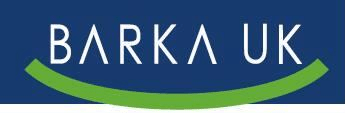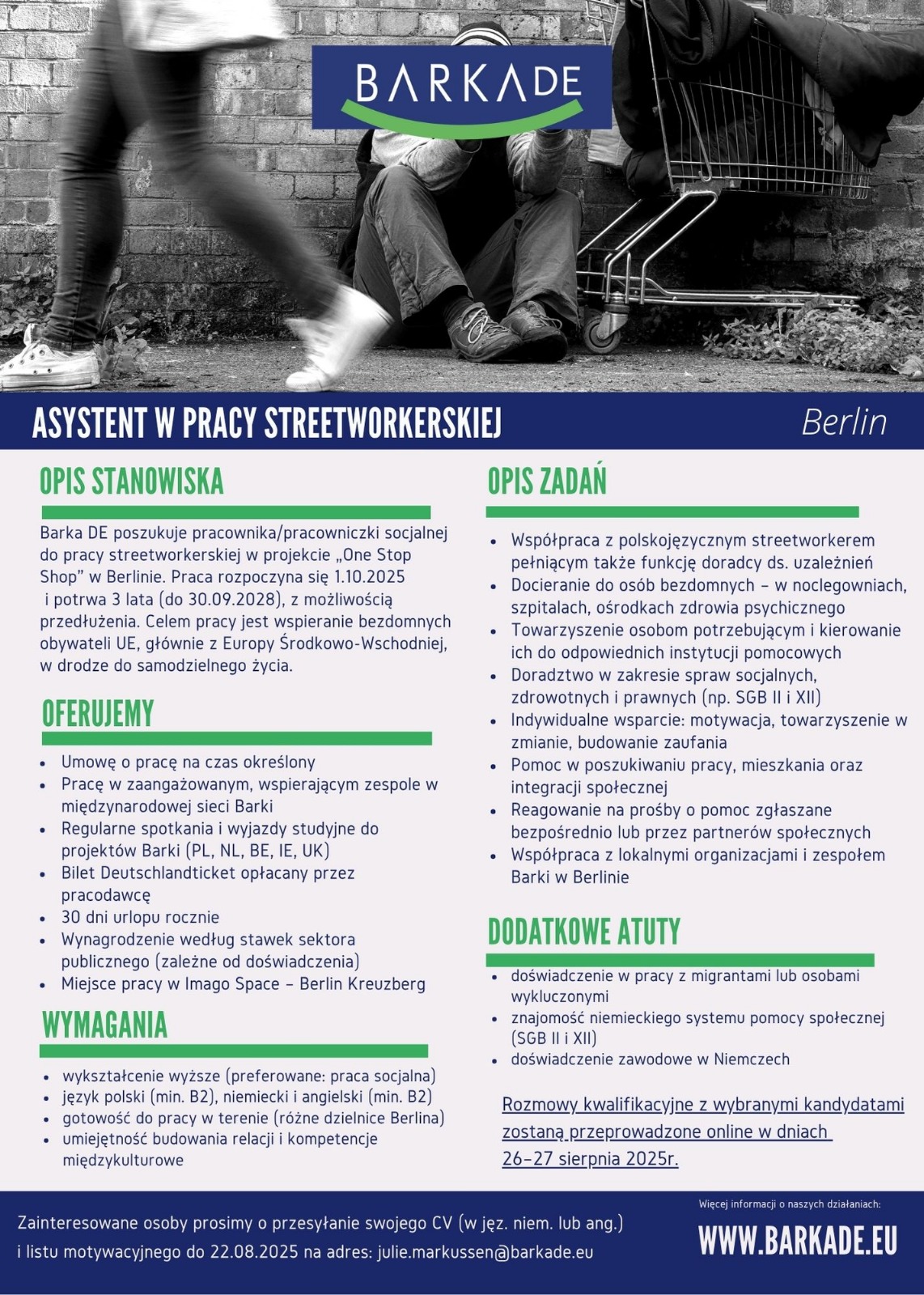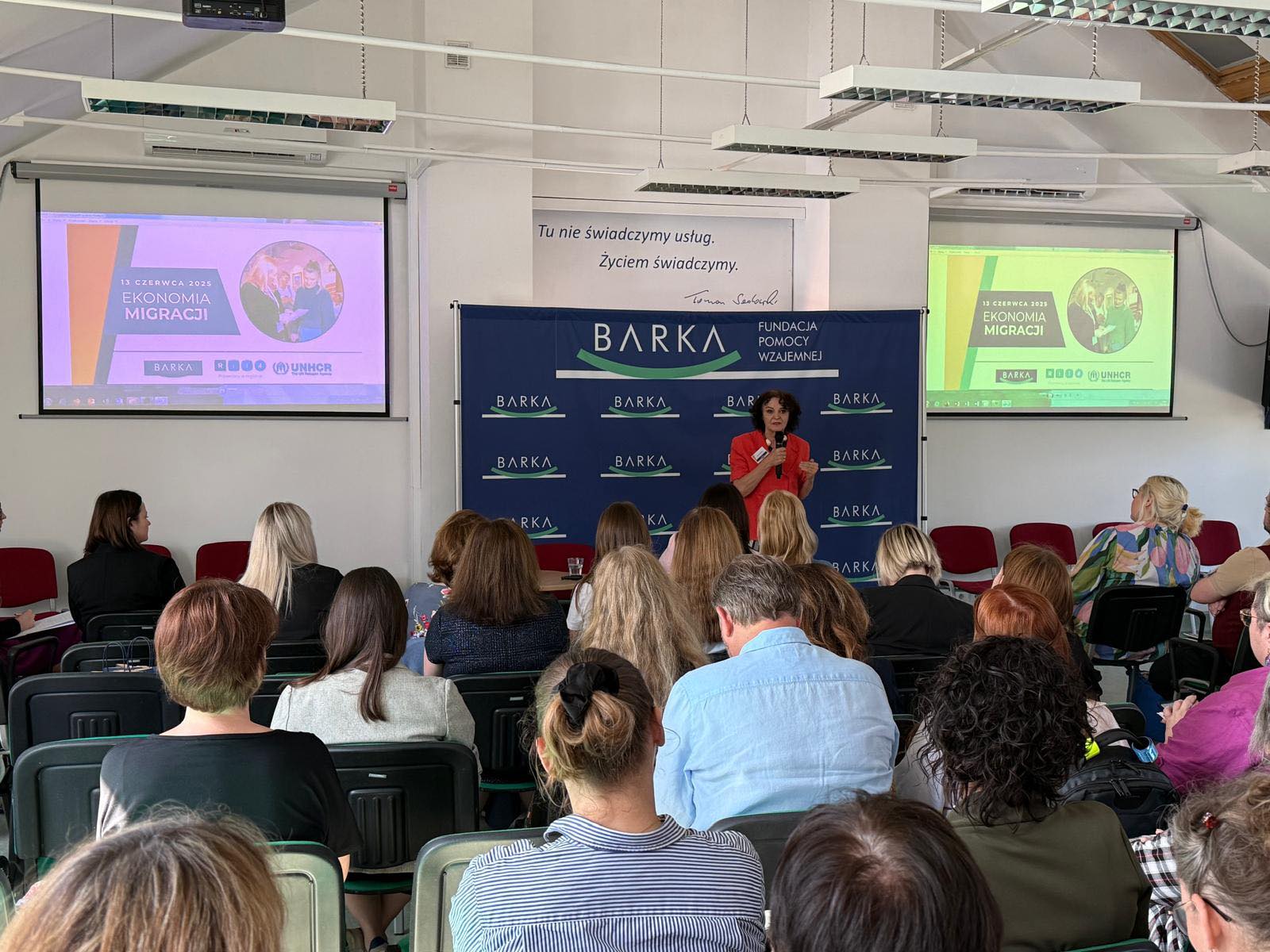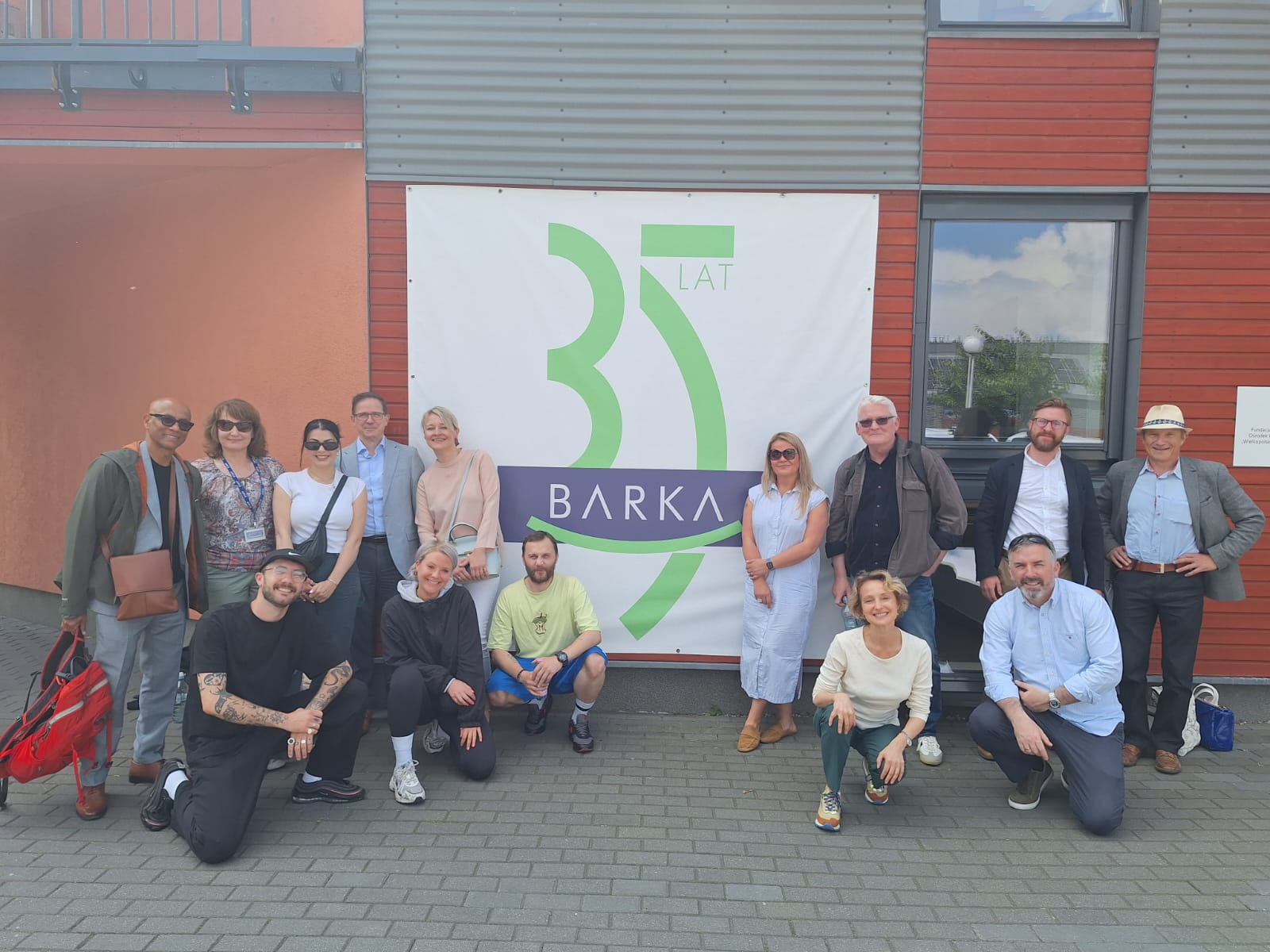On 29th and 30th July our colleague from Barka UK team, Anna Maria McKeever assisted German radio Deutchlandfunk as a translator in meetings & interviews arranged in Poland. Our guests, Ernie and Anja, invited by Barka Foundation, came to prepare a special broadcast on situation of the homeless, those at risk of social exclusion, Ukrainian refugees, pensioners, unemployed, vulnerable people of Polish villages, small towns and big cities. Barka communities in Chudobczyce and Poznan, also a Social Integration Centre in Kilcz and Diakonijna Employment Company were the places arranged for the interviews to take place.
Monday, 29th of July
A very busy day for the journalists started with a visit to Barka community in Chudobczyce.
They have been given a tour of the surroundings, including a fitness room, a library and the common areas by Kasia Bielerzewska, President of the Board of Barka Community Integration Association. Kasia told us about the residents of the community, their everyday life and the challenges it brings to the residents, support and help everyone received in Chudobczyce.

Barbara Sadowska, Chairwoman of the Barka Board Foundation welcomed the journalists and together with Kasia, we went for a walk through the garden and farm to see how the residents work and tend the grounds to contribute to the community’s self-sustainability.

The journalists also spoke with the main gardener and people tending the garden. As they were recording sounds, as well as interviews, they also looked into the kitchens, and the area where the community eat their meals. A special interviews with Robert, the chef and a former Barka UK leader Andrzej, followed.

Later, Barbara Sadowska answered numerous questions related to the beginnings of Barka and the challenges of leading Barka Foundation.

Next stop on the itinerary was a visit to Diakonijna Employment Company in Kwilcz, where we met Krystyna Dorsz, Chairwoman of the company and Henio, an employee, who gave us a tour around the factory as well as the sewing workshop. The journalists were interested in employees’ work, their renumeration, level of pensions and welfare system in the region.

The last stop of of the day was a visit to Social Integration Centre in Kwilcz, where we met the staff and participants of the daily programmes. Anna Cąkała, President of the Board of the Centre was our guide.

What needs to be changed in order for the state to look better after its vulnerable citizens?; what the situation looked like before transition period in Poland in late 90-ies in the region? How the lack of infrastructure and high level of unemployment in the region affects all the generations? These were the main issues discussed. The journalists also listened to the stories of some of the Centre’s participants.
At the end, there was a time to take a group photograph.

Tuesday, 30th July
A busy morning started with visiting one of the Clubs for Seniors in the Poznan district Lazarz and the interview with Jagoda Kaja who is managing the Club, where Polish and Ukrainian pensioners/elderly ladies meet twice a week, sewing, doing crochets, knitting and socialising. This Seniors Neighbourhood Club is a part of a Barka’s network of Seniors Clubs in the town. The participants make sensory toys and clothes for babies/children in the hospitals in the region and pet toys for animal shelter in Poznan. The meetings give the ladies sense of belonging to their community/local neighbourhood, they also feel needed, less lonely. The project has been funded by a local municipality and one of the aim of it is the integration in between Polish and Ukrainian ladies as well as integration of a lonely elderly ladies with a local communities.

Later, we moved to Barka HQ, to interview Maria Sadowska, Vice-Chairwoman of the Board of Barka. In the long interview, she told the journalists about her childhood spent at Barka’s first community established in Wladyslawowo, the story of naming Barka foundation. Maria also presented Barka’s activities in Poland and abroad. She focused on presenting Barka’s role in the creation of legal acts, as well as the implementation of new systemic solutions, such as the creation of the Social Integration Centre, Social Enterprises, Local Partnerships and programs for assistance to Ukraine and told journalist about plans for some of the Barka projects in the future.

An important point of the day for journalists was conducting an interview with Iryna Fomina, who told them about the path she took to find herself in Poland when the war in Ukraine broke out. Irina spoke about her new life in Poland and her work at Barka, in which she is involved, joining projects such as Safe Haven and Ashoka.

Other Ukrainian ladies share with us very emotional stories about their life in Ukraine, often far away from some members of their families, the trauma of the war, their stay in Poland and plans for the future.
The journalists also interview Oksana, working in the kitchen of Bistro, at Barka Poznan and listened to her story coming to and living in Poland. Darek, the Bistro chef’s inspiring story of living abroad, coming to Barka’ community centre, changing his life and learning how to bake an organic bread was also a part of the set of interviews.

At the end of the day, the journalists took part in a meeting of the Seniors Club operating in Zawady. Iwona Passowicz who manages the Club shared her experiences of teaching Polish to refugees, showing what a huge difference education and support for people in difficult situations can make.
All in all Ernie and Anja learnt many inspiring stories and conducted numerous interviews.
The saw how important Barka’s work is for the local communities and the Barka community residents and how much heart its members put into helping others.
We are eagerly awaiting the results of our guests’ work. The broadcast will be available in late September, in German along with the script.





